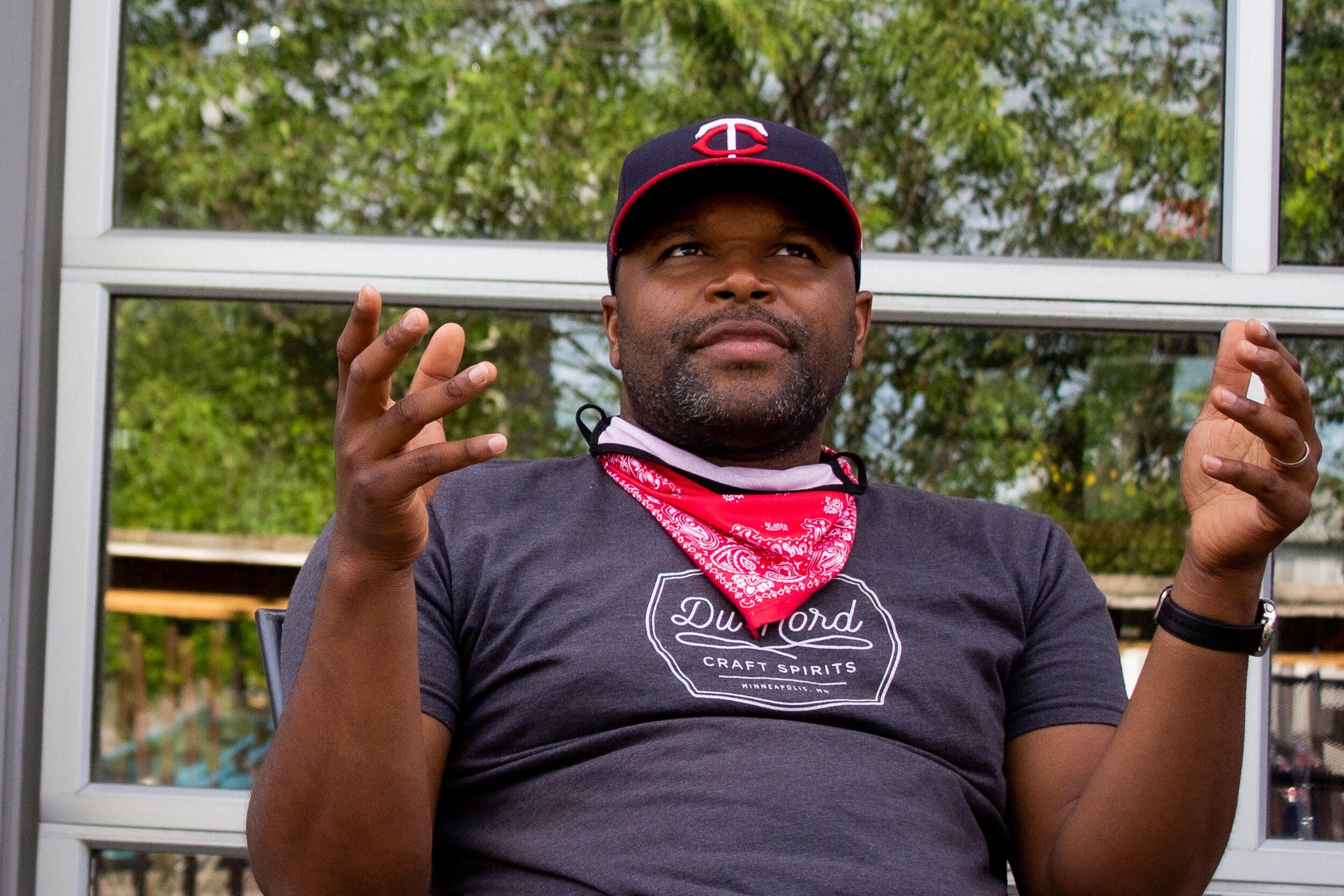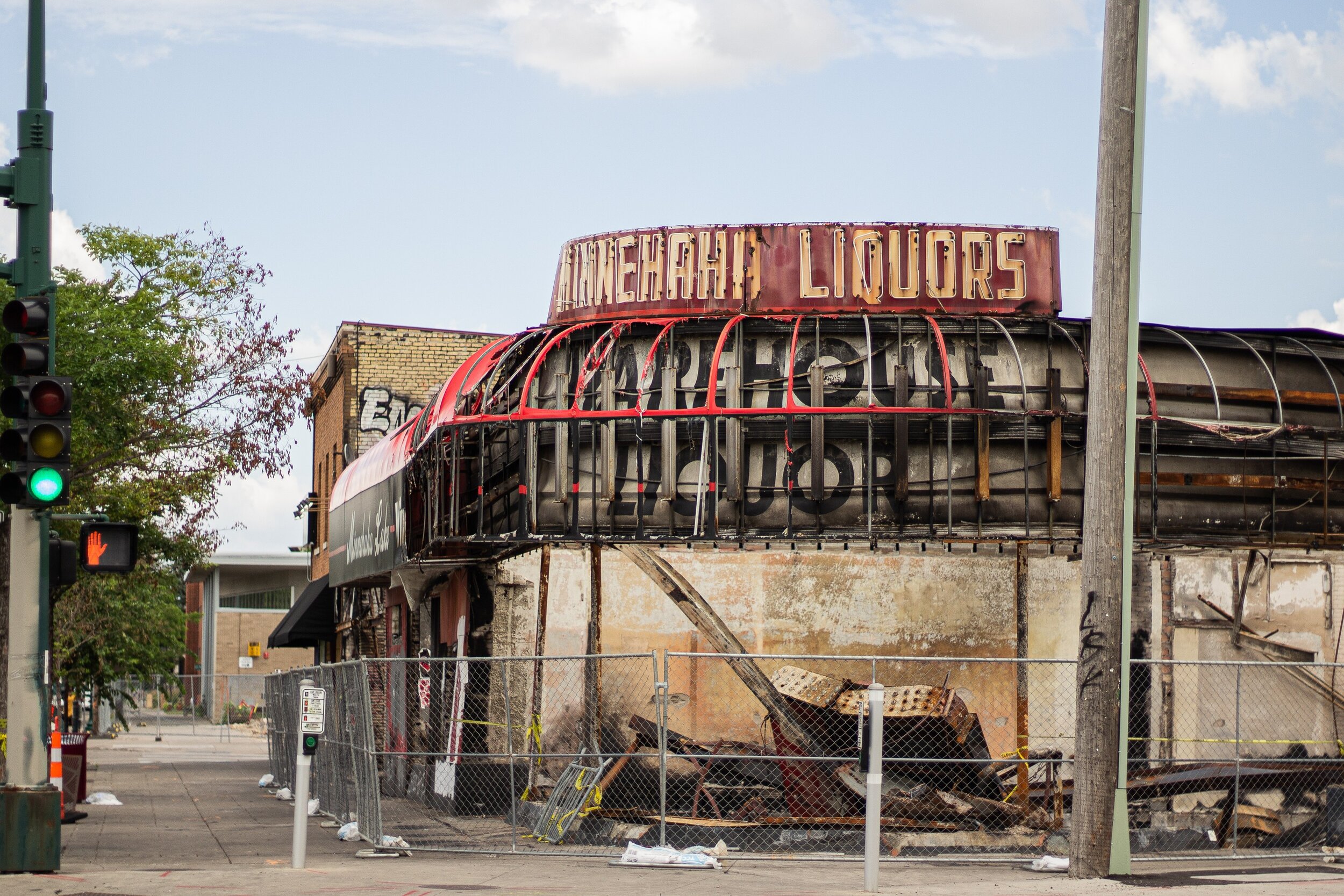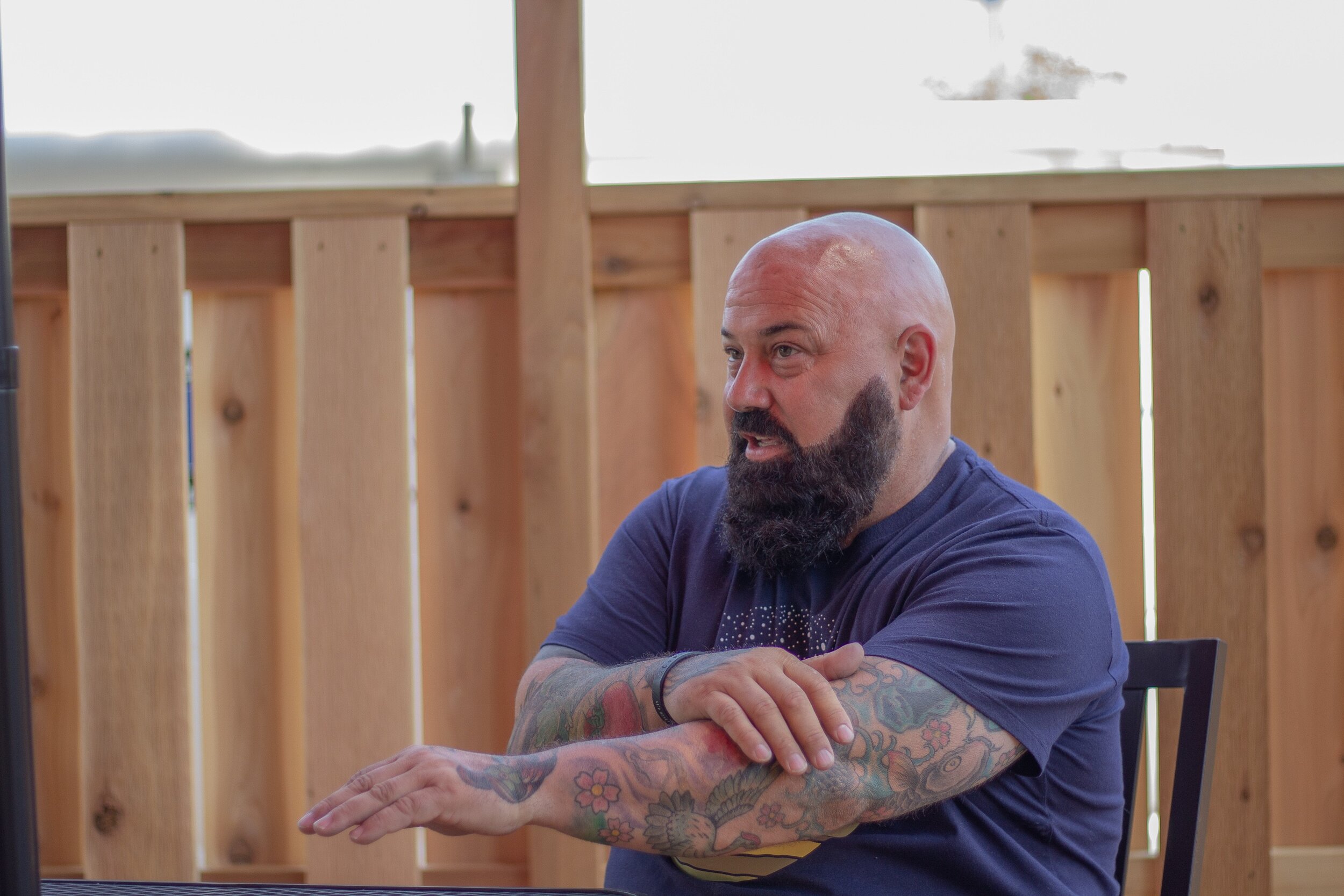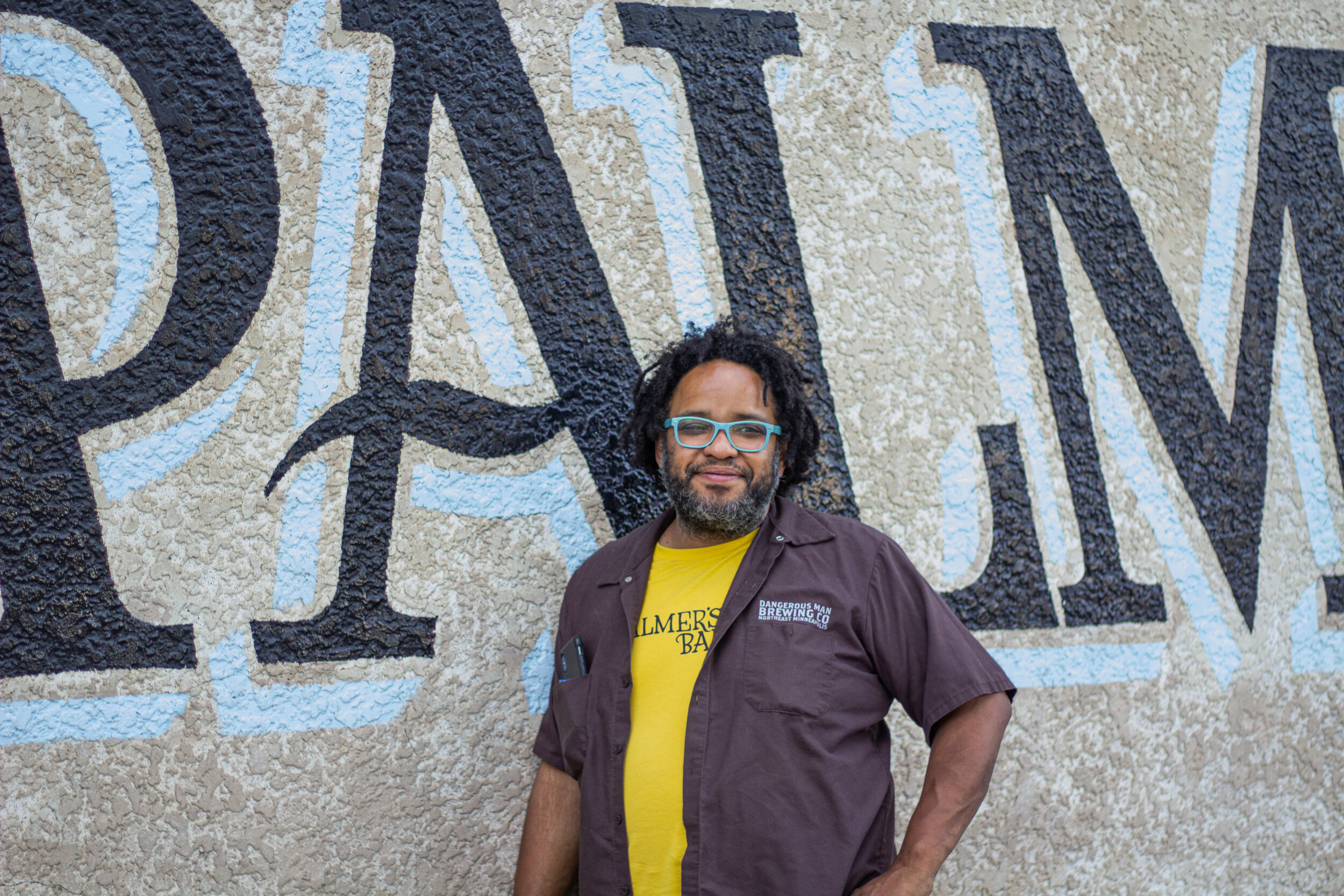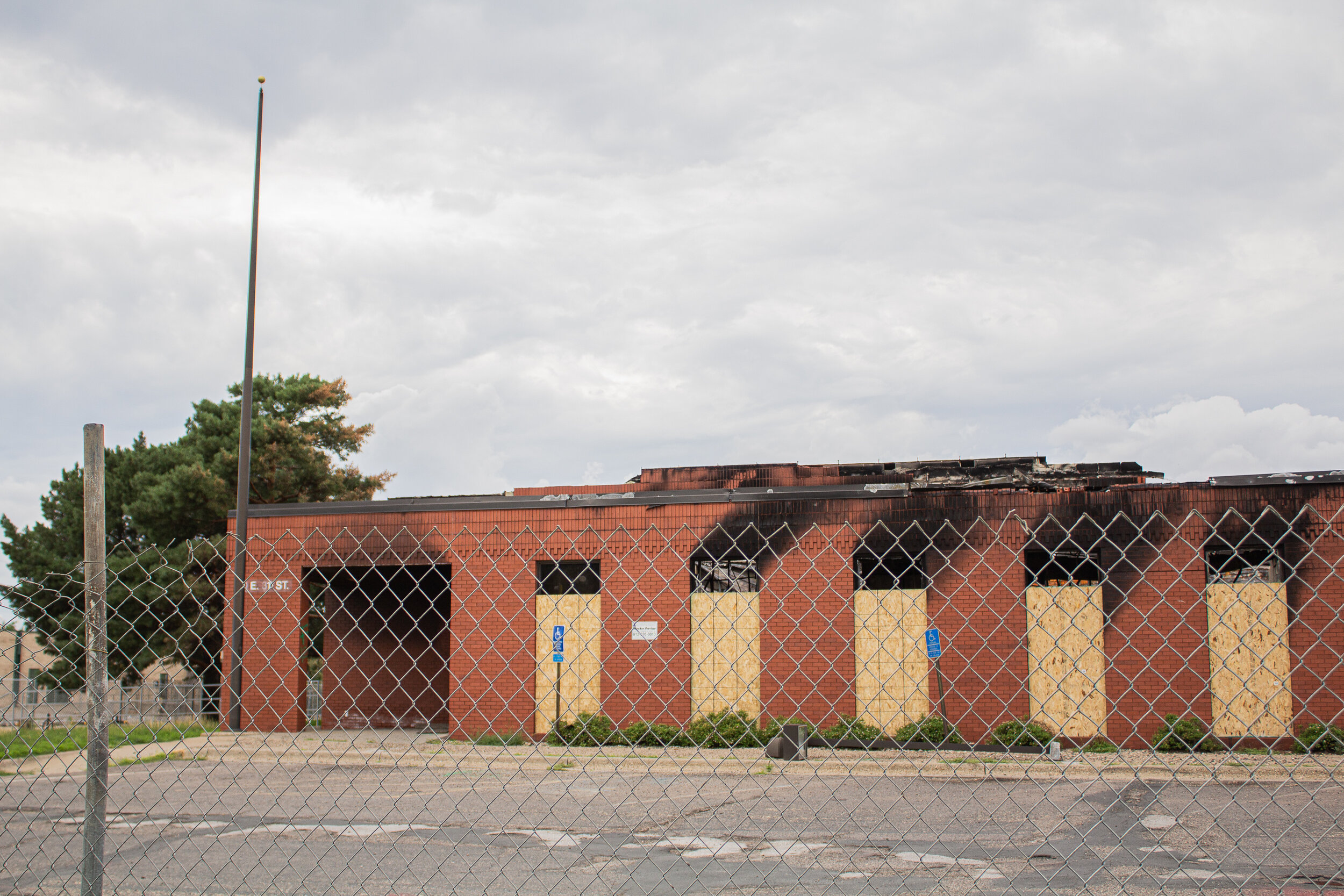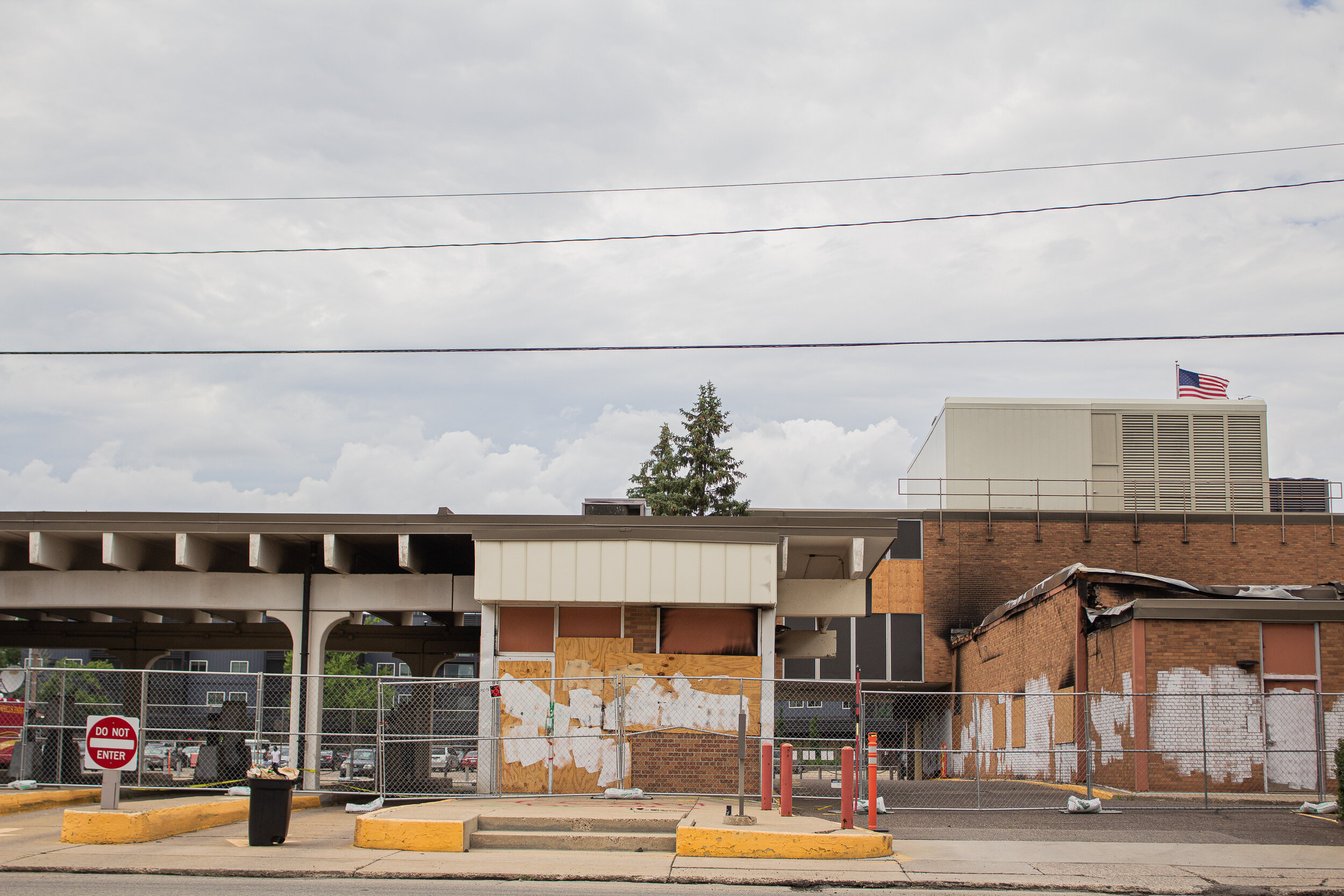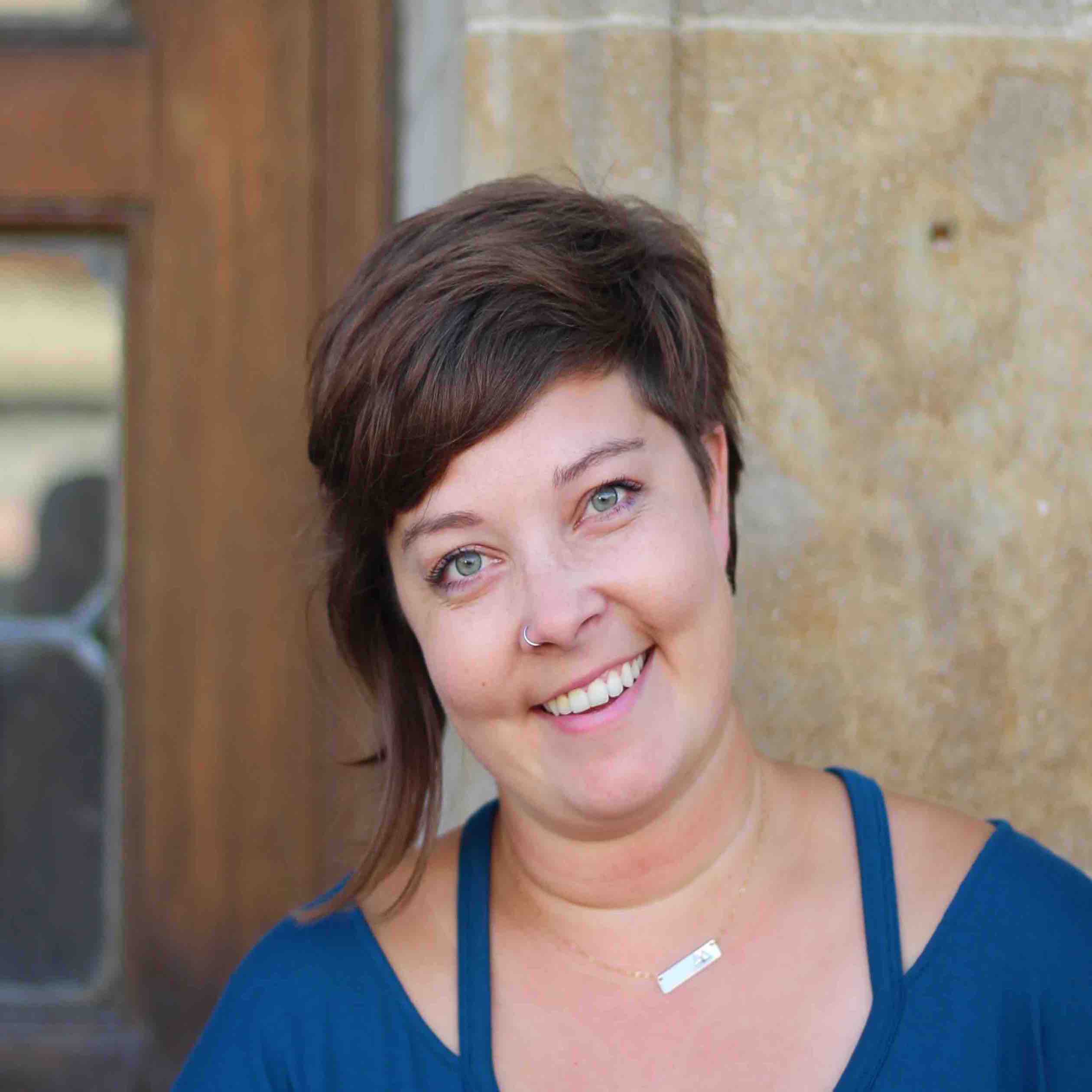In the week that followed the murder of George Floyd, many thousands took to the streets of Minneapolis and St. Paul in protest. In the fray, at least 10 independent food and drink establishments were lost, and 37 had substantial damage.
But the very business owners who saw their properties damaged or destroyed were often among the first to say “Let my building burn.” Even while they were put on fire department waiting lists, managers and employees stood at the ready to deflect the attention back to the matter at hand: arresting the cops who murdered George Floyd. Patrons set up GoFundMe pages and set out with brooms to help shopkeepers sweep up shattered windows, but the refrain from small businesses continued. “Don’t be distracted by the looters and rioters, who take advantage of real pain in our community. Remember George Floyd. Seek Justice,” says Ryan Pitman of Eastlake Craft Brewery, which experienced smashed picture windows in its Lake Street taproom.
Juno Choi, co-owner of soon-to-open Arbeiter Brewing Co., which is located a few storefronts from the Minneapolis Police Department’s Third Precinct says, “We're safe and our business is safe. We're tired, so very tired. Tired of the injustice, systemic racism, and murder of George Floyd.”
The destruction, concentrated along a five-mile stretch of Lake Street in South Minneapolis and a nearly four-mile stretch of University Avenue in St. Paul, is testament to the ways that racist violence harms communities across the country. Meanwhile, the Twin Cities’ bars and restaurants, which had been allowed to open with restrictions beginning on June 10, press on amidst the ongoing pandemic.
Du Nord Craft Spirits is a short walk from where much of the destruction took place. The small distillery is known for its gin and vodka, plus a growing list of liqueurs, and has been in operation for over five years. Du Nord was also Minneapolis’ first cocktail room, and due to local laws, can only serve alcoholic products that it makes.
In response to recent community needs, owner Chris Montana and his staff pivoted to making hand sanitizer. Later, they operated a makeshift food and supply shelf out of their warehouse, and maintained it even when Montana’s own apartment building was partially burned. We talk on the miniscule patio outside the cocktail room to discuss why his loss is also a gain.
[Editor’s note: All the interviews in this piece have been edited and condensed for length and clarity.]
Didora: Amidst your change in production to hand sanitizer, George Floyd was killed. What prompted you to mark Du Nord as a Black-owned business?
Montana: I actually didn’t do it. I didn’t stop them, but some of our staff members came back. So that Thursday, we knew something was going to happen. It was written all over. We already talked to the police. They weren’t going to do anything. They had no idea what the plan was. Their quote was, “Anybody can do anything.”
I biked down and saw what was going on in the Target parking lot. And all the out-of-towners that had showed up and were just burning random things and partying. Once I saw that, the group of protesters was too small. You knew that come eight o’clock, when there was the curfew, that the protesters were going to go away. As soon as they did, the riot was really gonna kick off.
So I told our staff, “We’re not staying here, we’re not defending this or doing any of that cowboy shit. There is nothing in here worth a human life.” I put a post up on Facebook and basically it was, “We’re going to turn it over to South Minneapolis.”
My production manager, Maria, and her partner came back. They had brought markers and paper and were like, “We’re gonna make these signs.” And they put them in every window. They wallpapered this joint.
“For those for whom the riots were a legitimate expression of anger, which I think is the majority, what do you expect ’em to do? What are you going to tell someone who lives in a country where the President is constantly talking about how great America is, but you know, as a person of color, that there has never been a version of America that’s been great?”
It obviously made a difference. The one place we didn’t put them was over there on the garage, because I had forgotten there was a glass door. We moved things from here to the garage, thinking the garage was the safest place to be. And we were obviously wrong [because the garage was the only area that was burned]. But I think that those signs saved the original distillery. The original distillery is back there [adjacent to the cocktail room]. The new distillery, that’s not happening. That’s where they set the fires. The inventory—we moved it over there thinking it was safer. That got stolen, and what wasn’t stolen was set on fire.
Didora: So it’s a little bittersweet then, the parts of the building that were saved.
Montana: Honestly, to look at it as a loss, you’re just gonna be pissed off about what you lost. I think you have to—forgive the cheesy comment—but you almost have to look at it as the opportunity to gain something.
As much as I didn’t want anyone to start this [fire], as much as I didn’t want to divert the message from police brutality, you can’t keep telling people to react the same way, and keep accepting non-action. You just can expect that. At some point, you’ve got generations of anger.
For those for whom the riots were a legitimate expression of anger, which I think is the majority, what do you expect ’em to do? What are you going to tell someone who lives in a country where the President is constantly talking about how great America is, but you know, as a person of color, that there has never been a version of America that’s been great?
As a Black man, I am 17 times more likely to get killed by the police than a White guy. And where in there is that okay?
I come from a politics background. I strongly advocate people get out, vote—don’t just vote, be the candidate. But at some point, people are gonna say, “Well, wait a minute. You told my parents to do that, you told their parents to do that. Nothing changes.” So there has to be a tactical shift. You saw a tactical shift. People got fed up. And with [a] very loud voice, and with their actions, wrote that anger up and down Lake Street, and University, and Broadway.
And if that’s the cost for some real change, rock on. Let’s do it again.
Didora: Do you have any thoughts on how non-Black business owners, or non-Black people generally, can be allies?
Montana: Keep talking. That’s the only damn thing. Keep talking. The energy goes away. We did the drop-off [of supplies] right here. So there was a line of cars that would reach two blocks. By the end of it, though, the second week—eh, a couple cars an hour. It’s because you turn the page. Eventually things go back to normal. If you don’t live in this corridor, you don’t see it, your neighborhood looks exactly the same as it did before.
It’s easy to turn the page. And we need people to keep talking. And not just talk to your inner circle of people who agree with you all the time. But getting out of your comfort zone. It’s something that Minnesotans are almost wired against.
Sometimes you’re gonna say something that is going to piss somebody off. But we have to be able to talk. So whether it’s business or just private citizens, if you give half of a shit about this country, then you have to address these issues. And it doesn’t mean, if we talk about our country’s original sin, that doesn’t mean that you’re anti-American.
Modist Brewing Company was one of the first local breweries to respond to George Floyd’s murder. Its Facebook statement, posted four days after his death, demanded justice, named other lives lost at the hands of police, called out the failures of law enforcement, and listed organizations that Modist would be supporting with its proceeds.
Though located in an affluent area of downtown Minneapolis, Modist tends to draws diverse crowds. Through its relationships within the arts and culture scene, Modist has since marshalled its resources, and has gone as far as to partially fund a new nonprofit.
Didora: In the weeks leading up to Memorial Day, you were already battling the effects of the pandemic. How had Modist pivoted to business without a taproom?
Wellendorf: We knew, this is going to be tough. And so, we were forecasting we could make it a few months. We weren’t going to go out of business [immediately], but we didn’t know what it was going to look like. And we weren’t going to have a Twins [baseball] season. And we weren’t going to have bar and restaurant sales, and that’s two-thirds of our business, essentially.
We did get the [Paycheck Protection Program] loan, so that helped. At the time, we were one of 6% of businesses that [applied for the loan and] got it.
Didora: You responded to the death of George Floyd two days after the infamous video of his murder was circulated. What prompted Modist to make such a strong statement?
Wellendorf: Part of the tone of the message was when it was put out. He was killed on Monday night. Tuesday morning I saw the news story and had all these flashbacks of here we go again. But there were a couple things that were different that made at least me optimistic. The FBI had already been called in. Our mayor had already condemned the act. Those two things happened before I woke up on Tuesday. [The police officers] had been fired.
“The ‘free hot dogs for protesters’ became a thing everyone talked about. Everyone that night was boarding up their windows and we were trying to open up our doors.”
But the clock is ticking. And then Thursday, they called the press conference, and okay, now we’re going to get some news. [...] And it was just bullshit. We’re all just waiting for them to charge these officers and they’re like, “If anyone has any videos, it would really help us out.” And I’m like, “The entire internet has videos. Do we use different internets? What internet channel are you on?”
Our community as a collective just felt, “What the fuck was that?” And so we said, “We need justice and we need it now.” So the strength of our tone echoed our community’s mood at the time. We were angry. We are still angry.
Didora: What did you do in the days that followed?
Wellendorf: That night, the protests were also moving downtown. We opened our doors, we put on—we have a brand-new hot dog roller. We put on some dogs, and we put up a sign. The “free hot dogs for protesters” became a thing everyone talked about. Everyone that night was boarding up their windows and we were trying to open up our doors.
Didora: So how did local musician Nur-D get involved?
Wellendorf: Nur-D, Matt Allan—his music career got its start here [at Modist]. He used to host Shut Up and Rap and ended up being a four-consecutive-week winner. He’s just been here ever since. He doesn’t even drink beer.
He left a review on Facebook just talking about what it’s like to come to Modist as a Black person. He kind of spells it out. You can make a welcoming place, but if you don’t feel welcome, then you’re doing it wrong.
So Matt Allen and his crew, they started this organization, Justice Frontline Aid, because they saw a need on the front lines. They were there showing support. They started gathering resources and just set up a tent. They were in Target’s parking lot at the Third Precinct.
Thursday night is when Third Precinct fell. The National Guard came in and took all their stuff, so they had to start from scratch. They lost all of their supplies.
So Matt called me on Friday morning. We were curbside and pickup only, so we became a donation drop-off spot. That was that day, Friday. It was kind of like that for a couple weeks. We essentially collected daily donations.
[Editor’s Note: Justice Frontline Aid is working to become a 501(c)(3) organization.]
Didora: Beyond ruffled feathers, have there been any substantial negative effects of your stance?
Wellendorf: We did lose an account. A restaurant. But the amount of accounts that have shown us support because of it, are, you know—it’s just like, so many comments are positive. So we kept 400 accounts and lost one. We got canceled by one. We’ve canceled accounts for far less [laughs].
I think that’s one of the biggest surprises of this whole thing. People have been surprised that a business would say something so political. That’s not politics, it’s human rights. It’s human rights, period. That’s just what you should do. It’s almost necessary.
“We got a lot of stuff. People were bringing things and we started saying, ‘If you had to go to the store for that one thing? What is that thing? When you think of that thing, do that.’ And then we started getting people who weren’t getting beer—just donating things, emptying their cars.”
By providing support for protesters, people thought that it meant we were supporting businesses getting burned down. Some of our business partners got burned. Literally to the ground. In no way do we want that happening. [But do] I feel that it’s my responsibility to tell African Americans how to show anger or frustration after being made to believe you’re a second-class citizen for hundreds of years? I’m not going to tell someone how to be mad. I’m going to tell them, “I support you.”
Didora: There has been some movement, most notably from Indeed Brewing Company, to eliminate the obligation to have a Minneapolis police officer at brewery-sponsored or outdoor beer events. You’re in support of that?
Wellendorf: Oh sure, yeah. We are going to throw block parties and stuff and that would require the police department with the current setup. But in no way would I want to work with the police department at this point. When we go into [Minnesota Craft Brewers] Guild events or bigger beer fests, the police have to be involved [by law]. I don’t think you should force anyone to work with you at this point if you can’t do your goddamned job. That’s just backing businesses into a corner to work with an organization that is not functioning appropriately. So yeah, fuck that.
Now there is a conversation about police alternatives, which is a big conversation, but that will be interesting to lay out. What an awkward spot to put everyone in, because you can’t figure your shit out.
Didora: What is Modist doing to keep the momentum? What do you hope to see in the next weeks to months?
Wellendorf: We created a page on our website where we are cataloging our updates. Obviously, working with Justice Frontline Aid has been very important. Going forward, we will continue our partnership with them. We joined the Black Is Beautiful collab with Weathered Souls down in San Antonio, and all those proceeds will be going to Justice Frontline Aid.
We brewed it today [on Juneteenth]. We put our own tweak on it, obviously. One of the things we decided to do is actually barrel [age] some of it. So then, at the very least, we can re-release it, to give even more. It’s not just a single brew. The least we can do is kind of stretch it out.
Venn Brewing Company opened near a major transit station on an airport route, and its location means it attracts a broad range of visitors. Venn has always had a strong “be nice” stance, and has doubled down during the pandemic. Messages like “be cool, it’s weird for everyone” are communicated on signs and social media posts, and embodied by staff. As Blair puts it, “Treat people as though they’re here because they want a beer, or because they need help.”
Lately, both have been needed. While fulfilling an unprecedented volume of crowler pickup orders, Venn used its position to collect and distribute donations when, following the protests, the business’s community was left without a grocery store for miles around.
Didora: What is Venn doing now to promote racial justice?
Blair: This is a thing that we talked about right away. We all were very vocal. The owners [Kyle and Connie Sisco] and I were like, “What do we say as a company?” All we would do is add to more noise and not leave space. We shut up. As soon as we could, we became a donation site, and we let our actions speak louder than words.
We had been asked multiple times by people in the neighborhood to make a statement, to be political. We never do. We want to be a completely neutral gathering space. But this isn’t political. It’s people. It’s human rights and treating all people equally.
And part of that is not overstepping and not shouting. And leaving space for the voices that need to be heard from more. People are still going to have needs, and we want to take a step back and see what is needed. Our opportunity to be more involved in the community is going to be very apparent.
Didora: The week of Memorial Day you were doing crowler pick-up only. What were the conversations that week?
Blair: The first conversation on Tuesday was, “Oh my god. What the hell?” There was a very small staff working in split shifts. Tuesday night we were watching helicopters all day. Trains were going by, car after car, that were empty because they were getting train cars out of Downtown.
And I was like, “We need to take some precautions about what is going on.” These are people that are very angry. Righteously angry. Collectively angry. People had been out of work for so long. Then, it’s like, this is worth leaving my house for. This is social justice. I can’t stay home. This is too big for that. We knew there would be protests. We kind of wondered, will this turn violent?
We didn’t board up the windows. We ended up getting chain-link fencing and two-by-fours [later in the week]. A lot of people were driving here, so we decided to close for a couple of days to be respectful.
“I did a post on social media that just said, ‘Any family in need, reach out to us for free food.’ That’s really when everyone—well, school was being canceled. Within two days I think we went from 100-150 requests a day to having 2,000 requests a day.”
Didora: Tell me about the decision to board up.
Blair: On the night that the Holiday [gas station] across the street burned down completely and the Walgreens across the street got looted, Thursday or Friday, we were—at that point, even if people got in here, what would they have done? Our kegs weren’t even hooked up. We have insurance. We were far more concerned about the people [living in the apartments] above us.
Didora: Do you think that’s why—
Blair: We wonder. We wonder if that’s why we got a pass. [Looking up] But clearly we are something commercial down here. We were terrified that someone would pick us. We were so scared for the people above us.
Didora: You became a drop-off site for supplies when many of your neighbors had no grocery stores. Who was donating?
Blair: At first, it was a lot of people we knew. And then people were placing orders for to-go beer and in the comments saying, “We’d like to donate, what can we bring?” And we got a list. I think Du Nord is where we got it from.
We got a lot of stuff. People were bringing things and we started saying, “If you had to go to the store for that one thing? What is that thing? When you think of that thing, do that.” And then we started getting people who weren’t getting beer—just donating things, emptying their cars.
The first loads went to Du Nord. And then there is a church over here, The Vine. They showed up and had a big 15-passenger van and filled it. The response was overwhelming in the best way.
And we were very sad that we couldn’t keep being a drop site. We just had nowhere to put it.
Brian Ingram is known locally as the hero who saved what was once The Happy Gnome, a cult-favorite destination for craft beer that emerged prior to the Minnesota taproom wave. At the soon-to-open bar and restaurant, since re-dubbed The Gnome, he is working with chef Justin Sutherland, plus an experienced team.
But until that revitalized concept opens later this month, he’s slinging breakfast.
Didora: Hope Breakfast Bar opened in September 2019. Did you always have a mission to do some giving back?
Ingram: Yeah. I was the founder. So, a year and a half ago, I decided to stop working in the corporate stuff and just wanted to do stuff that could be more purpose-driven. So my wife and I, we opened Hope, our first restaurant on our own. We didn’t have shareholders or hedge fund people that we had to be accountable to, and whatever money we wanted to give back, we could give back.
Two days before the Governor [Walz] announced restaurants shutting down [beginning March 17], I did a post on social media that just said, “Any family in need, reach out to us for free food.” That’s really when everyone—well, school was being canceled. Within two days I think we went from 100-150 requests a day to having 2,000 requests a day.
So we shut down and we said, “We’ll feed as many people as we can until we run out of money.” And that’s what we did.
Didora: Did you become a non-profit?
Ingram: We were already in the process. Our non-profit is called Give Hope. We just got it four weeks ago.
So we are at just over 72,000 meals [total] as of now. We’re still feeding—a lot of the local hotels all have at-risk homeless folks staying in them, so we deliver meals to them. We still do our Farmer’s Table, where anyone can come and get free produce, three times a week. So that’s the ongoing stuff.
The Happy Gnome used to have Firkin Fest [a parking-lot beer festival with one-off cask beer]. So our goal is, right around when the State Fair was supposed to open, to do an outdoor beer festival hopefully with our giant patio and our parking lot, we can sell some tickets and raise some money. We’ve talked to a woman of color that lost her business over on University, so our goal is to put somebody back in business and raise a couple hundred thousand [dollars].
Didora: What about your mobile food kitchen?
Ingram: There were a lot of people in restaurants that were doing photo ops. There weren't a lot of people that wanted to do the hard work, where you’re in these neighborhoods that are forgotten and don’t necessarily get press when you show up and feed ’em. So, frankly, we couldn’t keep up with the number of deliveries that were needed, so that’s how the mobile food kitchen came.
We’ll go to one place here, and then let them come to us [at the restaurant]. We were, at one point, it was literally 2,000 meals and day and 10,000 meals a week. We just physically couldn’t keep up.
What we discovered very quickly when a mom is on the phone and she’s crying and she said, “I’m in the red van at First Baptist Church in Minneapolis”—how do you say no? Uh, sorry. I’ll cry. [Pauses, head down.] Yeah, so. That was it.
Didora: You were scheduled to be closed the week George Floyd was killed. Did your outreach strategy change at that time? Did you think you were going to be serving different people?
Ingram: Yes. Our mission statement has always been, “It starts with a meal.” In my life, everything good has started with a meal. So we quickly knew—we drove down to Lake Street the day after the first rough night. We just said, “We’ve got to come down and help feed these people.”
We are down there and you’re seeing dozens of people throwing bricks back and trying to help clear the sidewalk and all of the volunteers that were down there. So many people just looked like they needed sustenance.
US Foods called me and said, “Hey, we’ve got 150 cases of produce,” and we just went down to where that Target was on Saturday and gave [it] away. So yeah, we pivoted to that, and then we joined [other] outreach as well. Wherever the needs were or where we could be the most impactful.
Didora: I heard that you provided meals to the National Guard as well as protesters?
Ingram: We didn’t set up for that. We set up our community kitchen in front of our restaurant. The National Guard was staged right up here. They were walking in front of the Children’s Hospital [two blocks from Hope]. They were probably 20 or 30 National Guardsmen who were walking down the street. We set up a table with pancakes and hash browns and these big coffee urns and water.
It was a really amazing day because we had Black Lives Matter folks that were there. We had a family that had driven all night and came out from South Carolina, they were here for the protests to be a part of the movement that was happening. And we had the St. Paul Police Department, the fire department, all of these kinds of people that all came together, and it was a really neat thing to see. There were people hugging, people crying.
Didora: I guess when you say anyone in need can come, anyone in need will come.
Ingram: Yeah, and that’s all we’ve ever said. For us, it was never a political statement.
Didora: So your building was not impacted by rioting or looting?
Ingram: It wasn’t. The Gnome had some windows that had gotten broken out. Hope itself did not have any issues. Some of our neighbors had stuff busted out. We refused—everyone around us had boarded up and we just refused. We said, “We’re not boarding up.”
Didora: There is a lot of thought around that. About what it means to board up your windows.
Ingram: Yes! Yeah. For us, it just wasn’t a message of Hope. It wasn’t going to be the message for us.
Didora: Beyond being a gathering place, what are the ongoing things that you would like to do to combat violence against people of color?
Ingram: One, bringing awareness. I’ve got kids that are biracial. I’ve seen prejudice firsthand. Racism is real. It still exists. It’s out there.
We are trying to figure out right now—I have a very blessed life. I get lots of restaurant opportunities. So how is it that we can help folks? Justin and I just sat down and had a talk and I said, “You’ve worked for the man for a long time.” There are lots of articles that say, “Owner: Justin Sutherland.” Justin really isn’t an owner of anything. He works for a lot of rich, old White guys. And I said, “Why don’t we put you—not where you’re my director of culinary, not where you’re Madison [Restaurant Group]’s face of the company, but it’s yours and you have no debt. We’ll get you started.”
It seems really hypocritical for me to just keep growing my little business and not try to bring somebody along the way with me. That’s going to be our focus is how do we bring folks that don’t have the same opportunities that I have.
I want them to have 100% control. Yes, we want to give people of color opportunities within our restaurant, but I want it to be bigger than that. They don’t need me to tell them how to run a restaurant or what their menu should be or what their décor should be.
While bartending at Grumpy’s Northeast, where he had been for 19 years, Tony Zaccardi was told that the beloved West Bank dive bar, Palmer’s, was for sale. While he saw the prospect as a money pit (as opposed to his relatively lucrative bartending gig), owning a bar had also been a lifelong dream. Even two years after the May 2018 purchase, Zaccardi finds himself surprised when faced with the scarcity of Black business ownership.
Today, his neighborhood is majority Black, and Somali in particular—to the degree that the close-knit stretch of Cedar Avenue has been affectionately nicknamed “Little Mogadishu.”
Didora: Tell me more about what it’s like to be a part of the Cedar-Riverside community on the West Bank.
Zaccardi: I was welcomed into it. I didn’t know much about it besides the [music venues]. I knew Palmer’s was iconic. But as soon as I was reading the news articles and stuff, it was like, “Oh, this is a big deal.” And a lot of it’s because people love this bar. But a lot of people also drive by because it’s too scary to come in this bar. Once the Cedar-Riverside Business Association found out I was buying Palmer’s, they were happy.
This community in general has always been very come-as-you are. In the ’60s, the hippies were the ones that stopped this [gestures towards the skeletal beginnings of a skyway system that flanks the Palmer’s patio]. There was going to be a series of them. They were going to wipe out all of these businesses. Install a monorail. So you don’t have to leave the inside to go to the grocery store or post office. But it has always been an eclectic, wild place.
I was welcomed into that as soon as people realized I was very sincere. From the get-go. Because I am. And I think that helped me be accepted.
People realized—there was hope among Black people knowing Palmer’s was in the right hands. Somebody who knows what he’s doing; won’t tear down. The biggest change I’ve made is we take credit cards. You kinda got to. And [updating] the bathrooms.
Didora: During these events, I’m wondering what you, in all of your circles as a musician, a bar owner—what were you hearing from your Black friends and neighbors?
Zaccardi: Well, the amount of activism that I have seen is definitely from my White friends. I had a lot of employees that were on the 35W bridge when the truck and—[pauses]. I’ve been so isolated kind of down here. I toured Lake and Minnehaha a couple times. That’s when I decided to board up. But I haven’t had a lot of interaction, aside from people that I know were watching out for me when we were closed.
“Three nights in a row, during the curfew, I was going to sit out here [on top of the building] with binoculars and keep an eye on the neighborhood. But [...] I got too chickenshit. I looked around and there were White supremacists and National Guard with live artillery. And—I’m not going to die for this place.”
Three nights in a row, during the curfew, I was going to sit out here [on top of the building] with binoculars and keep an eye on the neighborhood. But there were people around doing lookout. And a group of Somali youth outside the 400 Bar with clubs. And I got too chickenshit. I looked around and there were White supremacists and National Guard with live artillery. And—I’m not going to die for this place.
Didora: You got a lot of media attention. You became a minor celebrity for painting “Black Owned Business” outside the bar. How did that idea come to you?
Zaccardi: Easily. So here’s what happened. The very first night of the real-deal riots at the Third Precinct, when the looting and the fires—I went the next morning to the Target parking lot. On the window of Gandhi Mahal, there was “minority-owned business” on plywood over a broken window. And my guy was coming to get started on the bathroom [renovation] that day. And I called him and said, “Dude, I’m going to board up.” Even though it’s not much. But I want to cover up the statue [a tall, dapper gentleman leaning on “Palmers”]. It’s made out of wood, so obviously.
So I just did it. And then I was like, “I should paint ‘Black-owned’ on there.” I was the first person to board up, except for Midwest [Mountaineering, which had already been broken into].
And I posted on Facebook, “Minneapolis: please take care of my baby.” It was sincere, but it was so last-minute. The next morning, I wake up and it was, [gestures at phone] Newsweek. London. What the fuck? It was shared so many times. Next morning: CNN. But on the air.
Didora: Speaking about putting messages on plywood, a Black neighbor of mine recently said, “It pisses me off that people are painting ‘Black-owned’ on their windows, because Black people don’t own shit in this town.”
Zaccardi: Wow.
Didora: Have you heard that sentiment from other people, that everyone is sort of bandwagoning? To either avoid vandalism or seem supportive?
Zaccardi: I haven’t heard a lot of—plenty of White-owned businesses have Black Lives Matter signs. You know what, in my mind, I’d say they’re trying their best to be an ally. If you had a storefront, you’re going to want to put one there probably.
I started reading the comments, from the Newsweek story and stuff, and someone said, “So what, White-owned businesses don’t matter?” C’mon. So on Sunday once we realized it was White nationalists and stuff, I was like, “Cool. Fuck. I just painted a giant target on my business.”
I haven’t heard a lot of sentiment about bandwagoning. Because, I think, for the most part, people that are doing it are sincere. You know? Having said that, that speaks to the trusting, good-natured side of me.
George Floyd was a bouncer at Conga Latin Bistro in Northeast. To regulars who now mourn him, he was a face of the hospitality industry. Nothing starts or ends with his murder, but instead the brutality of the past month exists as a demarcated chapter.
Brutality for people of color extends beyond physical violence. From exploitation to broken promises to economic injustice, the industry will not turn the page. The bars, restaurants, and venues of Minneapolis are vowing to do better, and, sadly, have a long way to go. Recently, allegations surfaced that an employee at 56 Brewing waved a noose in front of a Black employee, according to Brewing Change Collaborative. While the owner has announced his resignation, the remaining partners are vocal that they don’t share these racist views and are hoping to repair their image.
On June 26, head brewer and co-owner of ONE Fermentary & Taproom, Ramsey Louder, announced his resignation from the brewery. While the taproom was vocal about being a safe space for Black patrons and other marginalized groups, staff who have departed say otherwise. Over the past week, it has come to light that Louder was a minority partner who was often unfairly presented as the face of the company.
Louder, the first and only Black man to co-own a Minneapolis brewery (and only the second in the state) said, “Something that I have always known but have tucked away is how vulnerable BIPOC folks are in America. BIPOC folks are dying at the highest rates from COVID-19. BIPOC folks have been fighting against White supremacy in many forms but especially in the form of police brutality for hundreds of years. I’ve realized that my vision and values differ from those of ownership of ONE. The brewery that I see is one that represents BIPOC folks not only by creating a space that is welcoming to them. It also is a brewery that exists where BIPOC [live]. A place that employs BIPOC intentionally.” ONE has since announced it will remain closed indefinitely.
For those seeking to make change, approaching business with intention, and continuing to work to bridge gaps in a majority-White industry during a time of crisis, is the urgent call to action. “We are a White-owned business. People will pick up pandering from a million miles away. They will pick up authenticity from a million miles away,” says Modist’s Wellendorf. “It comes down to actually believing what you’re saying.”






